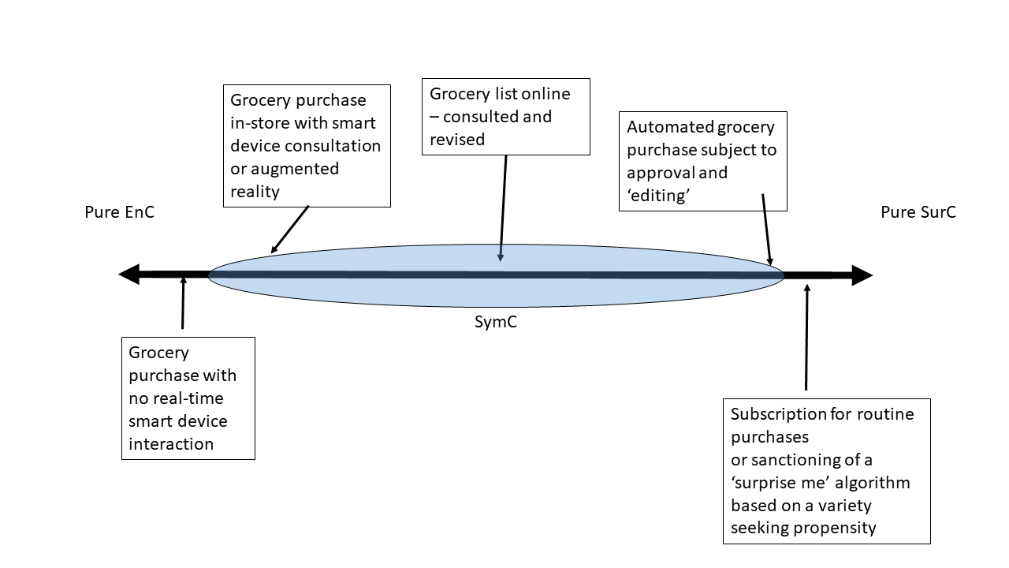Exogenous Cognition (ExC)
Very little research has explored the context of purchase decisions in terms of the effect of analytics driven decision support systems (i.e. the profiling and nudging of individuals via recommendations, saved options and preferences, biased searches and individualised webpages etc.). Following the Exogenous Cognitive Theory established by Smith et al. (2021) N/LAB is planning to explore the differential cognition and decision support for purchase decisions. The aim of the work is to study the information processing stage, i.e. information search stage prior and up to a choice.
Prof Andrew Smith is currently funded by the Leverhulme Trust on the Fellowship scheme to investigate the interaction of analytics and consumer decision making (with N/LAB colleagues Dr Lukinova, Dr Harvey and Dr Nica-Avram). The project is entitled ‘The anatomy of consumer decision making in the era of pervasive analytics’. This work builds on theory development by N/LAB members and is informed by ongoing purchase data analysis (see Bundle Entropy project).
Contemporary consumer decision making is profoundly influenced by smart technology underpinned by retailer and internet service provider analysis of purchase data/person centred data (leading to individually targeted advertising, pop-ups, price nudges, recommendations, biased search results etc.) – we call this ‘exogenous cognition’ since analytics ‘thinks’ for you. Research on the effects of this seismic change in consumer decision making is diffuse and fragmented. This project will generate a comprehensive, integrated and empirically grounded framework for understanding contemporary consumer decision making with implications for generic decision theory.
The project runs from June 2023 to Sept 2024. Routledge have commissioned a monograph based on this project entitled ‘Consumer Decision Making, Analytics & AI’.
The project will establish the effect of pervasive consumer analytics on the cognitive processes of consumers via depth study, survey and experimental methods (including neuroscience). These insights will be cross-referenced with insights from purchase data online and offline.
Our theoretical work was the genesis for this empirical work and provides various structure for understanding the contemporary context of consumer decision making. For example:

There are three proposed states of cognition/decision-making – endogenous ‘EnC’ (someone thinking without the help of technology e.g. in-store), symbiotic – ‘SymC’ – (thinking with the help of a smart-phone or computing) and surrogated cognition ‘SurC’ (where the decision is ceded or completely delegated to machines e.g. an app that autonomously invests money on your behalf).
Exogenous cognition and cognitive state theory: The plexus of consumer analytics and decision-making.
We develop the concept of exogenous cognition (ExC) as a specific manifestation of an external cognitive system. ExC describes the technological and algorithmic extension of (and annexation of) cognition in a consumption context. ExC provides a framework to enhance the understanding of the impact of pervasive computing and smart technology on consumer decision-making and the behavioural impacts of consumer analytics. To this end, …[more]
Consumer Decision-Making, Analytics and AI
Many decisions in our lives are decisions we make as consumers and buyers. Analytics driven marketing underpinned by machine learning and AI has had a seismic impact on the execution of these decisions and on behavioural outcomes. This book dissects processes and issues at the heart of our emerging reality as human actors embedded in a system of exchange driven by fast evolving technologies. It is a seminal work on …[more]
Pre-order the forthcoming monograph here!



